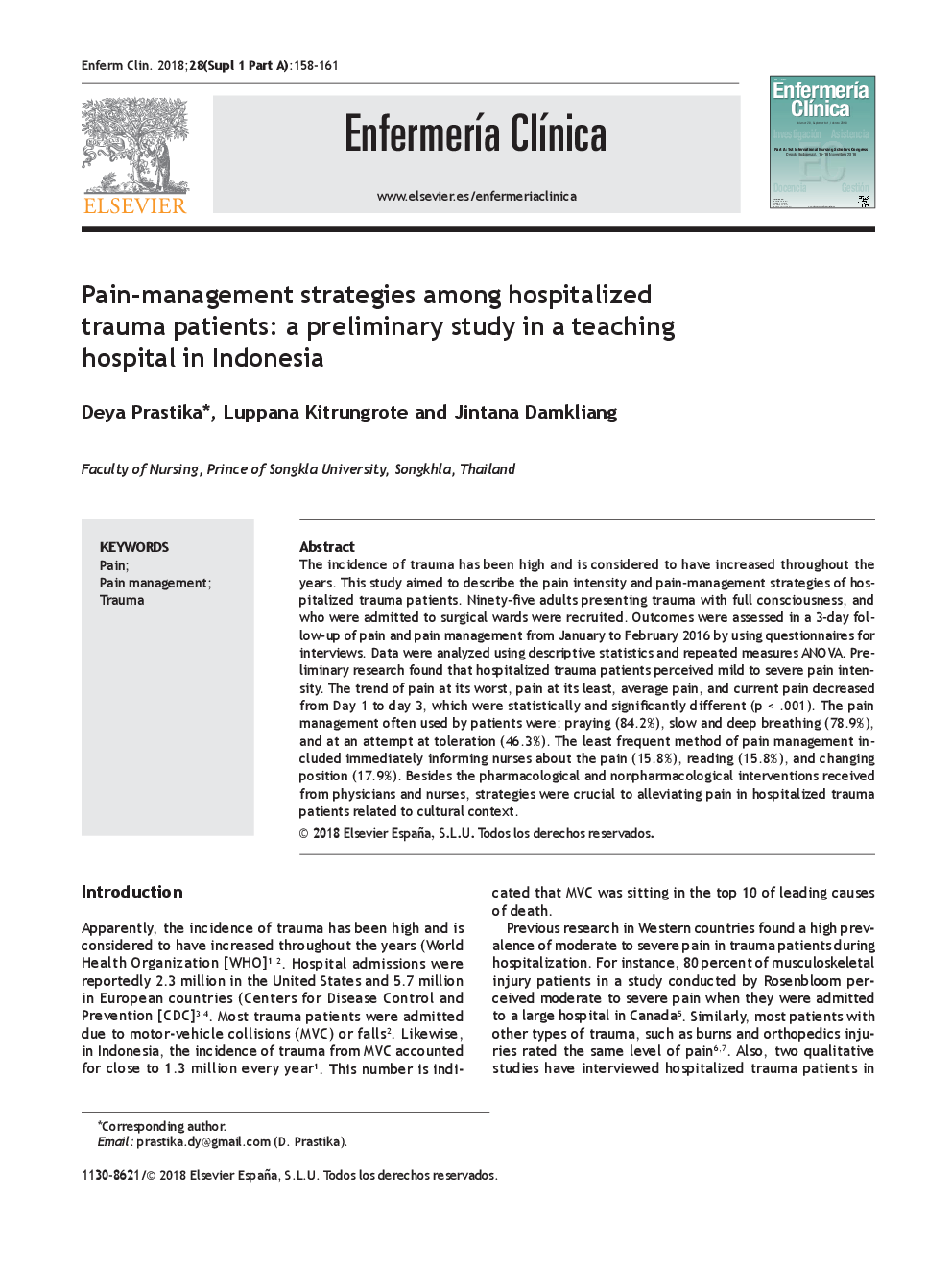ترجمه فارسی عنوان مقاله
استراتژی های مدیریت درد در میان بیماران مبتلا به تروما: مطالعه مقدماتی در یک بیمارستان آموزشی در اندونزی
عنوان انگلیسی
Pain-management strategies among hospitalized trauma patients: a preliminary study in a teaching hospital in Indonesia
| کد مقاله | سال انتشار | تعداد صفحات مقاله انگلیسی |
|---|---|---|
| 160797 | 2018 | 4 صفحه PDF |
منبع

Publisher : Elsevier - Science Direct (الزویر - ساینس دایرکت)
Journal : EnfermerÃa ClÃnica, Volume 28, Supplement 1, February 2018, Pages 158-161
ترجمه کلمات کلیدی
درد، مدیریت درد، تروما
کلمات کلیدی انگلیسی
Pain; Pain management; Trauma;

